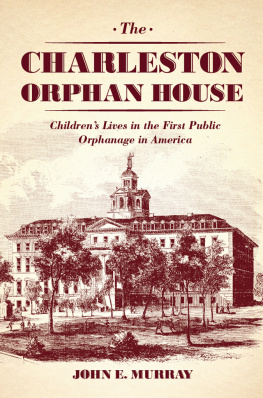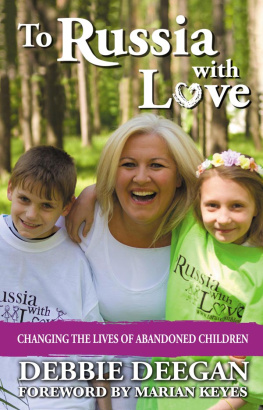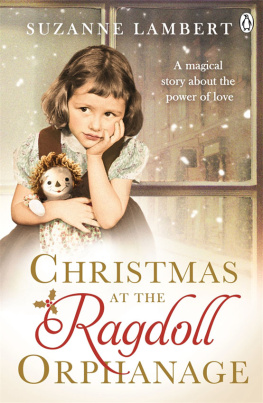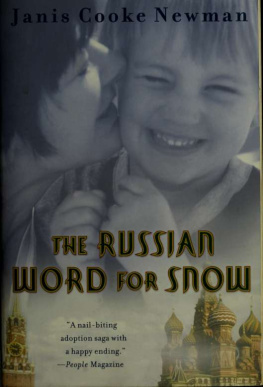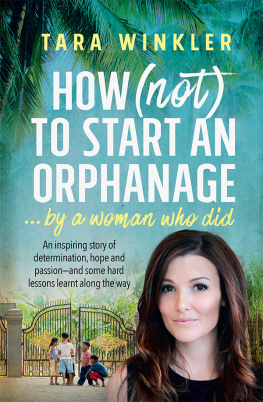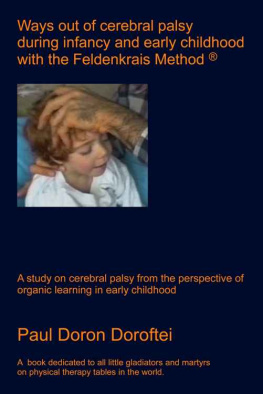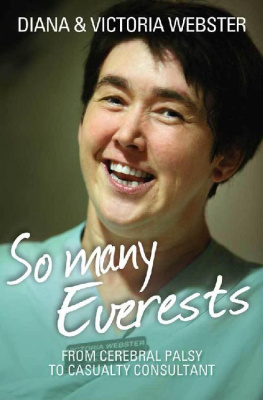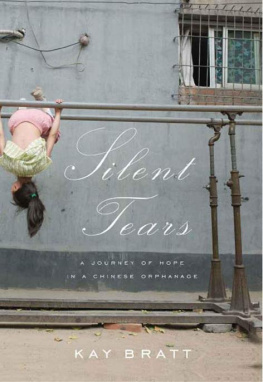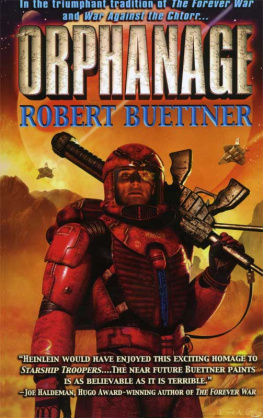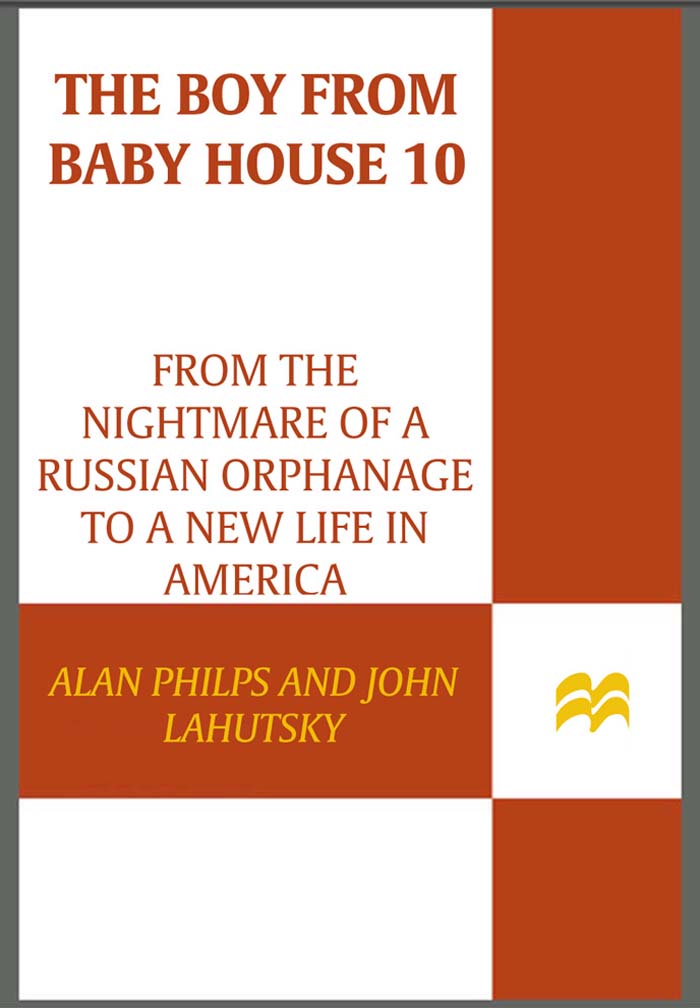The Boy from
Baby House 10

From the Nightmare of a
Russian Orphanage to a New Life
in America
Alan Philps and
John Lahutsky

St. Martins Press
New York
THE BOY FROM BABY HOUSE 10. Copyright 2009 by Alan Philps and John Lahutsky.
All rights reserved. Printed in the United States of America.
For information, address St. Martins Press,
175 Fifth Avenue, New York, N.Y. 10010.
www.stmartins.com
Book design by Kathryn Parise
LIBRARY OF CONGRESS CATALOGING-IN-PUBLICATION DATA
Philps, Alan.
The boy from Baby House 10 : from the nightmare of a Russian orphanage to a new life in America / Alan Philps and John Lahutsky. 1st ed.
p. cm.
ISBN 978-0-312-57697-4
1. Lahutsky, John, 1990 2. Developmentally disabled childrenRussia (Federation) Biography. 3. Cerebral palsied childrenInstitutional careRussia (Federation)Biography. 4. Adopted childrenUnited StatesBiography. 5. Intercountry adoptionUnited States Biography. I. Lahutsky, John, 1990 II. Title.
HV874.82.L34P55 2009
362.196'928360092dc22
[B]
2009017119
First Edition: October 2009
10 9 8 7 6 5 4 3 2 1
The names and identifying characteristics of some people
have been changed.
To the children who never made it
Contents
Preface
I willed myself to keep climbing. Though my legs are weak, my arms are strong, probably as strong as anyone elses in my Boy Scout troop. The men and boys below were shouting, Come on, John! You can do it. I stretched out my left arm, gripped the rope, and pulled myself up. I told myself, Yes I can do it.
I could tell that none of the other boys had been expecting me to try to climb the rope netting. I had watched them one by one grapple their way to the top and seen they did not find it easy as they swayed backward and forward, like sailors on the rigging in a high wind. I worried that my legs would get tangled in the ropes and the instructor would have to rescue me. Or I could fall off and be left hanging foolishly in my harness. The other boys had all had their turn and the instructor looked at me and said, John, do you want to try? I could tell he would not mind if I said no. I looked him in the eye. Ill go for it.
The instructor strapped me into a harness and tightened the fastenings around my waist and shoulders. Then he put a helmet on my head and adjusted the strap. I reached up and grasped the coarse rope netting and pulled myself up. As my feet left the ground, my whole body lurched backward and I fought to hang on. One hand after the other I pulled myself upward. I broke into a sweat and started to breathe heavily. I heard the voices below me shouting, Keep going, John!
I maneuvered my right hand to grab the next rope, and an image flashed into my minda small boy, naked, sedated, behind steel bars in a locked room. That boy too was trying to climb. He was trying to climb over the bars of a crib, but they were too high. He tried and he tried until he collapsed, exhausted, on a bare plastic mattress.
I stopped a moment to catch my breath, and I heard voices below shouting, Dont stop. You can do it. It was as if they were encouraging the little boy in my head. Yes, I can do it, I thought, as I gripped the rope, gritted my teeth, and pulled myself up with all my force. Id do it for the sake of that little boy, who was utterly alone.
That boy, you see, was me, my six-year-old self, when I was in another country and spoke a different language and my name was Ivan, or Vanya for short.
I reached the top of the netting, to a burst of applause from my fellow Scouts. I turned and smiled at them. It had been toughbut nothing compared to what my six-year-old self had overcome.
My Scout troop does not know about my past. What would they say if they knew?
What follows is my story. I am told I may be the only child to have survived the worst type of institution in the Russian childrens gulag and gone on to live a normal life in America. These institutions created by Stalin continue to devour children to this day. Thats why I feel my story has to be told.
As my mom says, if it saves just one child from the hell I went through, it will be worth it.
I, like thousands of other Russian children, was categorized at the age of five as ineducable and condemned to permanent bed regimea living death in bare cribs. I hope my success in an American high schooldespite having had no education at all until I was nearly tenwill prove how wrong those Russian experts are to write off children as imbeciles.
My friends who knew me in Russia often ask how I survived when so many of the children like me died before the age of seven. I cannot answer that question.
This book has been a long time in the making. For years after my coming to America, my mom used to send reports on my progress to a British couple, Alan and Sarah, whom I had known when I was in Baby House 10 in Moscow. We sent photos to them: my first visit to Disney World, being greeted by Mickey Mouse; my citizenship party, where I wore a stars-and-stripes top hat and Mom wrote on the back All American John; and me in a tuxedo dressed as my hero, James Bond; and later, me in my Scout uniform.
In 2006, Mom sent them something differentan article from our local newspaper, in which a journalist interviewed us about how we found each other, our life together now, and my early childhood in Russia. Alan e-mailed back to say that, judging from the article, it was obvious I knew only a fraction of my extraordinary story. The next year, Alan and Sarah came to stay with us here in the United States, and we shared memories of our time in Moscow when Alan was a newspaper correspondent, Sarah was accompanying him as a trailing spouse, and I was in the care of the state. I had many questions: What happened to my birth family? How did I come to be in Baby House 10 and why was I sent from there to an adult mental asylum at the age of six? Why had it taken so long to rescue me?
The more I heard, the more eager I was to know everything. I wanted to know why Russian doctors made no distinction between mental and physical disability and how they could condemn children with mild physical disabilities to a living hell. As we sat talking, Alan said my story would make a great book. I leaped at the idea. You must write it, I told him. You and Sarah and Vika and all the others should tell their parts in my story. The world should know.
Since I have been in America, I have learned a lot about Russia. I recently gave my history class a presentation on the fall of the czar, the rise of Lenin, and Stalins takeover. This has brought me some insights into the system that tried to destroy me.
The story begins when I was only four years old. My memories of early childhood are vague, as most peoples are. Being locked away, I was not aware that at times I was the still center of a whirlwind of efforts to rescue me, which culminated in my moms responding to my cry for help.
To write this book, Alan has been back to Moscow to interview most of the people who came into contact with me during that time, and has used diaries, photographs, videos, and official documents. I contributed more as my memories of my life after the age of six became clearer.


